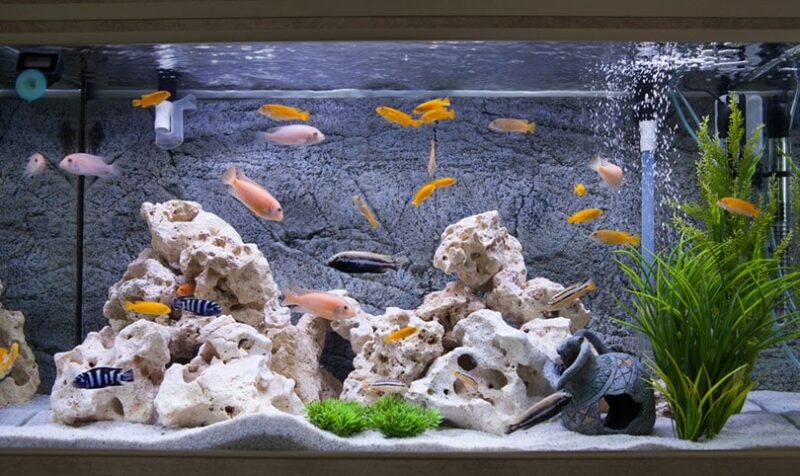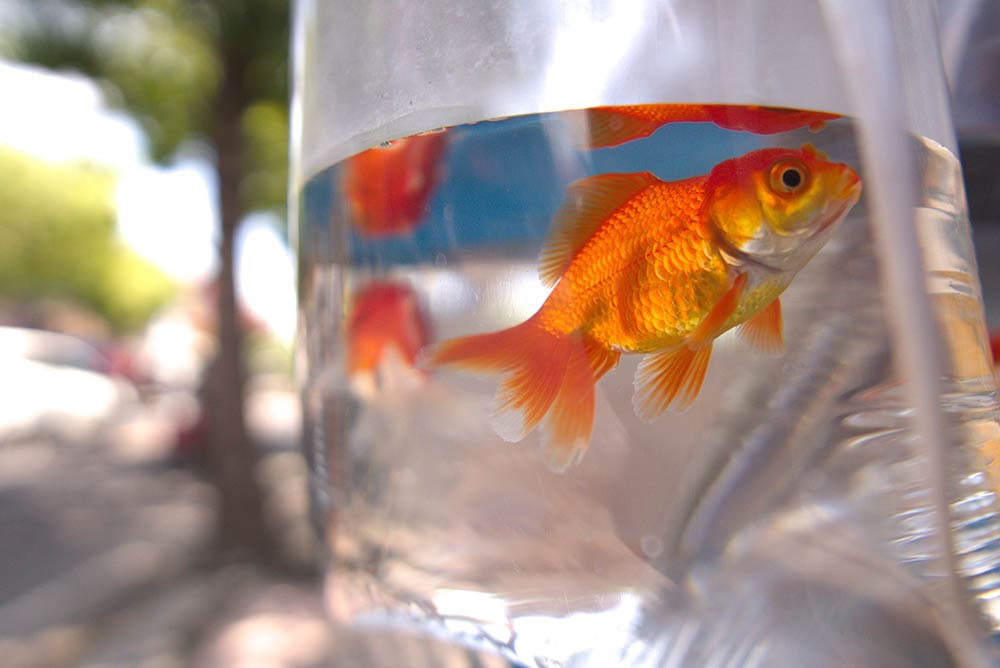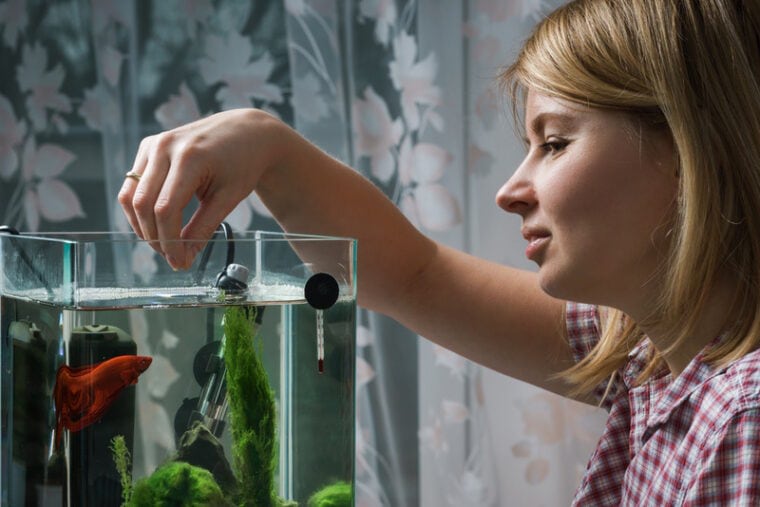
Also known as Siamese Fighting Fish, Betta fish are perennial favorites among experienced and new fishkeepers alike. These beautiful fish not only have eye-catching colors and elegant fins, but they are also very soothing to watch, making them ideal companions for offices, bedrooms, and even classrooms. These carnivorous fish tend to be good eaters, so if your Betta stops eating, it’s important to identify why.
The 10 Reasons Why Your Betta Fish Is Not Eating
1. Water Quality Issues
No matter the fish, water quality is consistently the number one issue. Poor water quality can develop for multiple reasons, with a simple lack of education often being the top cause. Maintaining high-quality water is essential to maintaining the health of your Betta fish, and ensuring your tank has the right temperature, pH, and chemical levels. Invest in a good water test kit (they’re actually quite cheap), and commit to routine water changes and parameter checks to ensure your Betta’s home stays clean and healthy.

2. Hypoxia
Sometimes, we overlook things when getting our tank set up, forgetting to put in a filter or air stone. Power outages can also cause problems with tank equipment, leading to failure. No matter the reason, without moving water, dissolved oxygen levels in the water can drop. When this happens, your fish can experience hypoxia.
Betta fish have a specialized organ called a labyrinth organ, which allows them to breathe room air, but they cannot do this permanently. Usable oxygen within their tank water is essential, and if your Betta isn’t receiving enough oxygen, they may stop eating. Although Bettas in nature tend to inhabit small areas with minimal water movement, this doesn’t mean they can be placed in a small tank with no oxygen. Equally, these often delicate fish will not cope in tanks with any rapid water flow, so be careful if introducing them into larger environments.
3. Toxins
Aside from the toxins associated with poor water quality, like ammonia and nitrite, there are external toxins that can find their way into your Betta’s tank. Putting your hands in the tank with lotion, perfume or soap on them, or using cleaning chemicals too close to the tank can allow these toxins to get into your Betta’s water, causing issues for them. If external toxins get into the tank, you will likely need to do a complete water change, and keep your Betta in a temporary tank while you sort out the water problems.

4. Stress
All fish are at risk for developing stress, and this commonly occurs when the environment is inappropriate in some way. Whether the water quality or temperature is off, the lighting cycle is inconsistent, or tank mates are aggressive, there are a variety of reasons your fish may become stressed. Sick fish are also likely to become stressed, but a stressed fish is more likely to become sick, creating a vicious cycle.
5. Inappropriate Temperatures
Betta fish are tropical fish, and even though they are often kept in small cups without temperature control in pet stores, they do usually require a heater in most homes. At a minimum, Bettas need water temperatures of at least 72°F, with 75°F being the preferred low temperature. In cooler room temperatures, Bettas may experience some problems, but if they’re kept in a considerably cooler room, your Betta will likely stop eating, as well as have a significant reduction in their activity level.
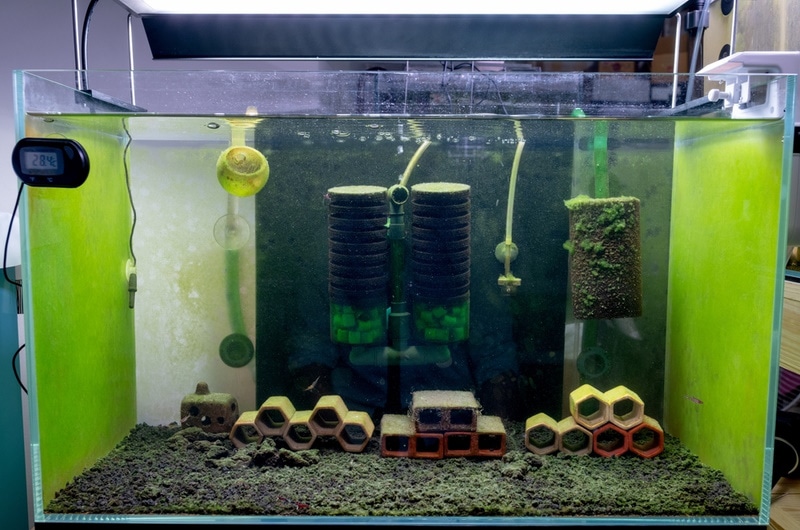
6. Inappropriate Food
Bettas are obligate carnivores, which means they require a diet high in animal proteins. Feeding your Betta a diet for community tanks, omnivores, or herbivores is likely to result in health problems for your fish. You must feed your Betta fish a high-quality diet made specifically for Betta fish, but they can also eat foods like bloodworms, daphnia, and brine shrimp as part of a balanced diet. If your Betta is receiving an inappropriate diet, then there’s a real chance of them refusing to eat since they won’t naturally find these foods appealing.
7. Blindness
Fish can go blind because of injury or illness, and blind fish do usually have some difficulty. Because their other sensory organs are usually intact, your blind Betta fish can live a long, happy life, but you may have to choose their food and where you feed them to help them get the most out of mealtimes.
Routine will help your fish find their food and ensure they are not sharing a tank with other fish that may steal their food before they can get to it. This is especially important if you are keeping a sorority of female Bettas.
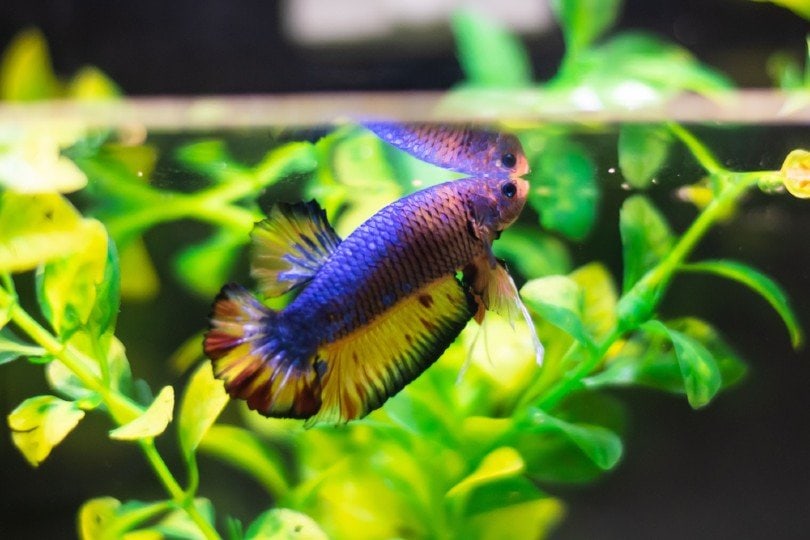
8. Competition
Even fish that haven’t lost their vision may have to compete with tank mates for their food. This can be avoided by keeping your Betta alone in their tank or carefully selecting tank mates that will stay out of the way of your Betta and not steal food. Tank mates that are fast and aggressive can outcompete your Betta for meals, so if you think that your Betta just isn’t eating, you may actually see them not being able to keep up with the faster tank mates. Male Bettas need a territory of at least 20 gallons per fish, so they generally should not be housed in the same tank. Even if you do have a very large aquarium, male Bettas may still fight, particularly in breeding times, so it is generally best to stick to one male Betta per tank.
9. Medical Conditions
Medical problems, including infections, tumors, or organ failure can lead to digestive, energy, and appetite problems for your Betta fish. Many medical issues are commonly accompanied with other signs of illness, like dropsy (accumulation of fluid inside body cavities), scale issues, and fin rot.

10. Overfeeding
If you’re feeding your Betta multiple times per day and you’re noticing them rejecting a mea, then there’s a high chance that you’re overfeeding your fish. Overfeeding can lead to bloating, constipation, and a reduction in water quality, so it’s important that you find the right feeding schedule for your Betta. Only feed what your fish can eat in 5–10 minutes, removing uneaten food. Most fish only need to be fed once per day.
Conclusion
A Betta fish that is consistently skipping meals or that has gone multiple days without eating is cause for concern. It’s important that you try to identify the cause of the anorexia so you can remedy the issue and get your Betta happy and healthy again. Make sure you’re staying on top of water quality, as well as feeding your fish an appropriate diet.

